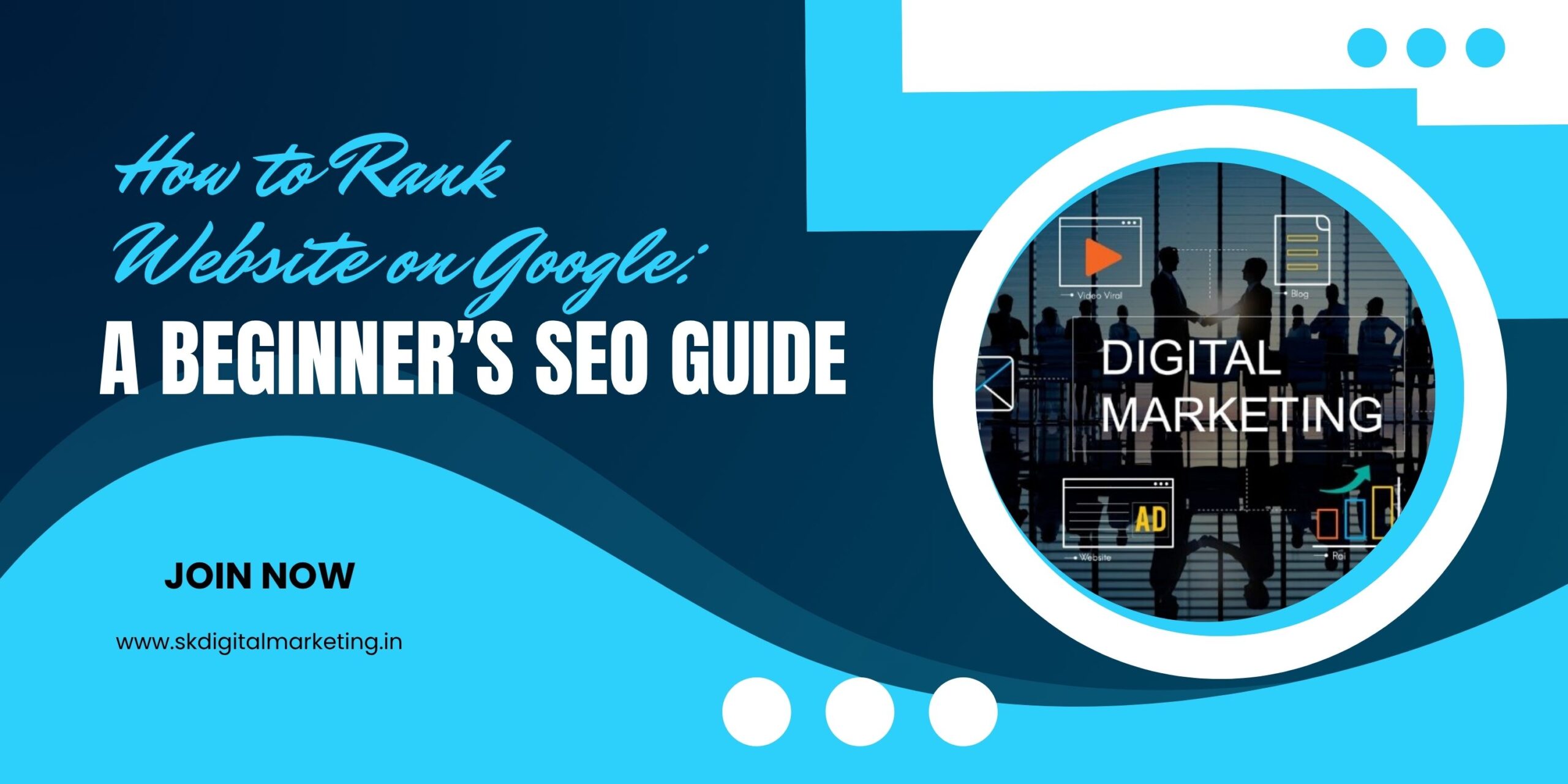In today’s digital world, your online presence can make or break your success. Whether you’re a startup, blogger, freelancer, or small business owner, learning how to rank website on Google is the first step to online visibility. Digital Marketing plays a key role in improving your reach, attracting traffic, and generating leads online. Search Engine Optimization (SEO) is the most powerful part of digital marketing, and even beginners can master the basics to generate real results.
This beginner’s guide will walk you through simple, proven, and powerful techniques to help your website appear in top Google search results. If you’re new to SEO, don’t worry. We’ll explain every essential step in a way that’s easy to understand and implement.
What Is SEO and Why It Matters
SEO, or Search Engine Optimization, is the practice of optimizing your website so it appears higher in search engine results. When users search for information related to your business or content, Google ranks websites based on hundreds of factors including keyword relevance, user experience, backlinks, mobile-friendliness, and more.
If you want to rank websites on Google, you need a strategic plan that covers both on-page and Off-page SEO strategies.
Step 1: Start with Solid Keyword Research
Before you create content, you must know what your audience is searching for. Use free tools like Google Keyword Planner, Ubersuggest, or AnswerThePublic to find relevant keywords.
For beginners:
- Focus on long-tail keywords (like “best digital marketing course in Panchkula”) which have less competition.
- Choose keywords with moderate search volume and low competition.
Pro Tip: Use your chosen keyword in the page title, meta description, URL, and naturally throughout the content.
Step 2: Optimize Your On-Page SEO
On-page SEO refers to all the things you can do within your website to improve rankings.
Here’s a checklist for effective on-page SEO:
- Use your primary keyword in the title (H1), subheadings (H2/H3), and first 100 words.
- Write compelling meta descriptions.
- Use internal linking (link to other relevant pages on your site).
- Add alt text to all images.
- Ensure your website loads fast and is mobile-friendly.
These practices are crucial in any SEO Guide for Beginners, and they lay the groundwork for long-term ranking success.
Step 3: Leverage Off-Page SEO Strategies
Off-page SEO strategies focus on building your website’s credibility and authority across the internet. This primarily includes backlinks—links from other websites pointing to yours.
Effective off-page strategies include:
- Guest posting on reputable blogs in your niche.
- Submitting your website to local business directories.
- Sharing your content across social media platforms.
- Engaging in online forums and communities.
Google sees these backlinks as “votes of confidence.” The more quality links your site earns, the better your chances to rank website on Google.
Step 4: Create High-Quality, Value-Driven Content
Content is the backbone of your SEO efforts. Google’s algorithms prioritize websites that offer real value to users. Your goal should be to solve your reader’s problem better than anyone else.
Best content practices:
- Focus on user intent (what people actually want to learn).
- Use simple, clear language.
- Add FAQs to match voice search trends.
- Include visuals, infographics, or videos to keep readers engaged.
Remember, how to rank your website on Google depends on the quality and relevance of your content just as much as keywords and links.
Step 5: Track and Improve Using SEO Tools
Even the best strategy needs continuous optimization. Use tools like:
- Google Analytics (to monitor traffic and user behavior)
- Google Search Console (to track keyword rankings and indexing)
- Yoast SEO or Rank Math (for on-page SEO checks)
These tools help identify what’s working and where your site needs improvement. Even if you’re following a SEO guide for beginners, using these tools can boost your confidence and results.
Bonus: Local SEO for Faster Results
If you’re targeting a specific city like Panchkula or Chandigarh, focus on local SEO:
- Create and optimize your Google My Business profile.
- Add your location in titles and content.
- Get listed on local directories.
Local SEO is especially powerful for small businesses or service providers trying to attract nearby customers.
Common SEO Mistakes to Avoid
Even the best beginners can make mistakes. Watch out for:
- Keyword stuffing (using keywords unnaturally)
- Duplicate content
- Broken links
- Slow website speed
- Ignoring mobile optimization
Avoiding these issues is essential if you’re serious about learning how to rank your website on Google.
Conclusion: Start Ranking Today
If you’re just getting started, this SEO guide for beginners equips you with the essential tools and tactics to make an impact. From keyword research to off-page SEO strategies, every step you take brings you closer to more traffic, visibility, and success.
To truly rank website on Google, consistency is key. Keep learning, keep improving, and apply these SEO fundamentals regularly. Over time, you’ll notice your pages climb higher and your audience grow stronger.

